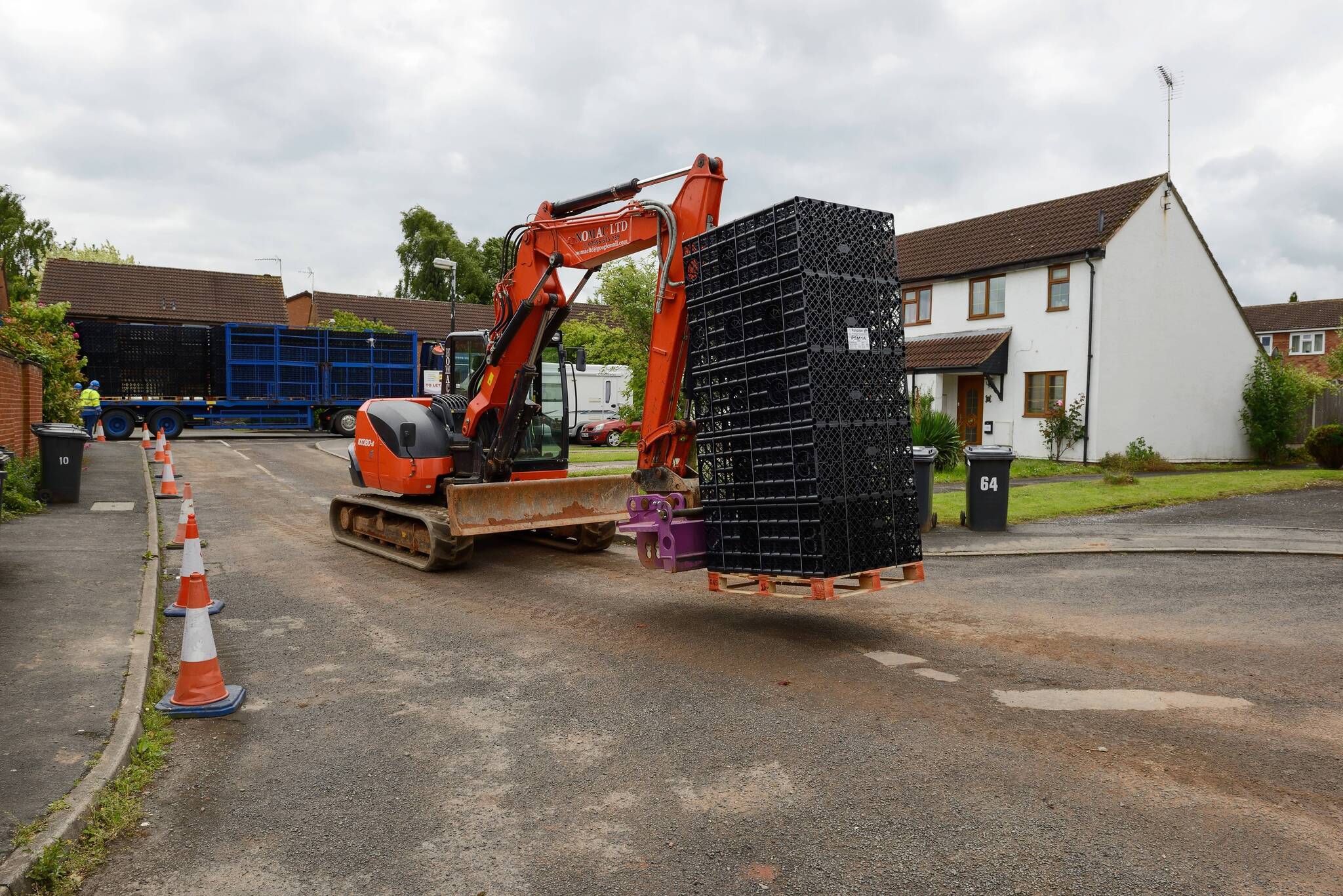Home protection enhanced as Polypipe delivers flood alleviation solution to Kidderminster estate
Thursday 26th October 2017

Polypipe has supplied a complete attenuation solution for the £1.3 million Kidderminster Linnet Rise Flood Alleviation Scheme.
The lack of capacity in the area’s existing highway drainage network placed many properties on the residential area of Linnet Rise at risk of flooding, with the consequences most recently seen in 2007, when thousands of pounds’ worth of damage was caused by a flood, following torrential rain.
The scheme was designed to ensure a collaborative approach to solving the area’s flooding issues by providing a SuDS system that would provide long-term defence with minimal intrusion to the existing space. Polypipe was approached due to its extensive track record of successfully delivering attenuation systems for developers and contractors. Working closely with contractor NMCNomenca and Severn Trent Water, Polypipe supplied a complete prefabricated solution using Polystorm geocellular tanks, together with pipework, manholes and catchpits all manufactured off-site. The solution would also allow the installers to negotiate the very tight parameters of the Linnet Rise site, where space to manoeuvre plant equipment would be a challenge.
The solution delivered by Polypipe and NMCNomenca retrospectively addressed the site’s drainage issues for the long term while keeping installation time and disruption to a minimum, showcasing the capabilities that Polypipe can offer when improving the standards of flood protection in heavily populated areas. Polypipe’s system was also fully adopted by Severn Trent Water.
The final design saw the installation of two Polystorm geocellular tanks at a depth of 3.2 metres, under two resident owned car parks on the Linnet Rise site, providing 366m3 and 479m3 of storage respectively. The tanks were formed using Polystorm cells, which boast a 95% void fill ratio. This solution maximised the tanks’ storage volume within the limited space available for an attenuation system on this compact housing estate. These tanks will safely store flood water in the event of surface water sewers reaching capacity following heavy downpours, before releasing water back into Severn Trent’s watercourse once the downpour has subsided.

The two tanks were laid at a 1 in 150 gradient across both length and width, to facilitate draindown to the primary inlet and outlet located in the bottom corner of the crates. This will ensure that any sediment entering the tank from the surface water sewer is flushed out through the same flow path. Three channels were also installed in each tank, to promote water flow dispersal throughout the geocellular crates and provide inspection points along the length of the tanks, which are accessible via six specialist access turrets located outside of the site’s car parking bays.
Polypipe’s gravity return design means that the two tanks fill and empty without using any pumps or valves and therefore, following installation, the system will cost nothing to run and require minimal future maintenance by Severn Trent Water.
Polypipe’s ability to design and manufacture pipework, manholes and catch pits off-site provided the perfect solution to the project’s limited working space and the need for quick installation. The supply of high-quality parts, designed to the project’s exact specification and delivered directly to site, meant that the system could be installed in a single day, reducing both contractor costs and disruption for local residents.
Rosie Cheetham, Marketing Consultant at Polypipe, said, “This project highlights the capabilities that our SuDS water management systems can deliver in improving the quality of life for residents in urbanised areas. Forming a vital part of this retrofitted alleviation scheme for Linnet Rise, our tailored solution countered the limitations of the original drainage system to offer long-lasting flood protection. It also ensured that the installation process caused as little disruption to residents as possible, thanks to our ability to prefabricate components ready for quick and easy installation on site. The success of the Linnet Rise project is an excellent example of how our innovative water management systems can make retrospective flood protection possible even in densely populated urbanised areas.”


